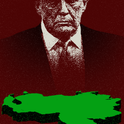Some decades ago the biologist Richard Dawkins coined the word “meme” to describe bits of cultural material—nostrums, fashions, behaviours—that acquire broad currency and then get passed along like genes. Looking at political commentary in the last few years, you can see that a powerful meme has taken hold: American government is broken. Writing in the New York Times in 2010, Paul Krugman described a nation “paralysed by procedure” and “re-enacting the dissolution of 18th-century Poland.” In February, speaking at a debate sponsored by National Public Radio, Arianna Huffington observed, “Wherever you look, you see that we can only produce suboptimal solutions to our deepest crises.” An editorial in Newsweek in early 2010 put the question bluntly: “Is America Ungovernable?”
The argument for the affirmative is robust. Congress and the White House have been unable to come to terms on a package of budget cuts and revenue increases to diminish the country’s catastrophic debt. On Capitol Hill, politicians in both parties are held hostage by the special interest lobbyists whose ranks they will join upon leaving office. Republican leaders, meanwhile, have vowed in effect to say no to anything President Barack Obama asks for, even if they agree with it in principle. Out in the land, Tea Party activists and Occupy Wall Street protesters give vent to passionate and contradictory eruptions. The debates among candidates for the Republican presidential nomination have been sidetracked by bizarre discussions of electrified border fences in Texas and the cost of air-conditioning in Afghanistan. News stories have been written on whether Mitt Romney flipped-flopped when he said that Mitt was his first name. (It is his middle name.)
This seems an unhappy state of affairs—not the way America is supposed to work. “I’m Just a Bill,” a song known to generations of American schoolchildren, describes how laws are made—it’s a jaunty account of the governmental process. Today it comes across as ironic, probably even to kids.
But it is all too easy to lose perspective. The truth is, America has always been hard to govern: ungovernability is its default condition. Even those historic moments that, in retrospect, are held up as exemplars of wisdom and decisiveness turn out to look different when viewed up close.
A great deal of triumphalist rhetoric is lavished on the era of the Founding Fathers. It didn’t seem triumphal at the time. The US Constitution was ratified by a hair’s breadth, and embodied ugly compromises, such as the stipulation that slaves be counted as three-fifths of a human being. The two political parties that developed in the 1790s fought viciously—over taxes, treaties, troops, appointments, everything—and brought the young nation repeatedly to the verge of collapse. George Washington took criticism from all sides, and his stoic composure cracked. He was being painted, he wrote, “in indecent terms as could scarcely be applied to a Nero.”
The civil war is the moral and political fulcrum of American history: the moment when the country finally decided the question of slavery and began to think of itself as a federal construct rather than a grab-bag of quasi-autonomous states. As the historian Shelby Foote has pointed out, before the civil war people said “the United States are,” afterwards they said “the United States is.” Abraham Lincoln’s achievement as president is rightly praised—a masterclass in democratic leadership, by turns principled and manipulative—but it was a close-run thing. His “team of rivals” was unstable, and his electoral coalition (ranging from firebrand abolitionists to pro-Union slaveholders) threatened to shatter at any time. His renomination, in 1864, had been far from certain. “I claim not to have controlled events,” Lincoln observed, “but confess plainly that events have controlled me.”
Everyone points to the presidency of Franklin D Roosevelt as another watershed—and indeed it was. But “governable” does not describe America in the 1930s. Roosevelt proved inconsistent in his economic policies, and the policies themselves did modest if any good. He was so frustrated by the Supreme Court that he rashly sought to solve the problem by expanding its membership to create a majority favourable to him. (The “court-packing” scheme failed, and damaged Roosevelt politically.) America’s entry into the second world war required political cunning of a high order—something understood in Britain more acutely than it is in the US. Writing to his aide Harry Hopkins, FDR noted that if the Americans of 1775 had been replaced by the Americans of 1939, there would have been “more shouting than fighting.”
American governance is messy by nature—that is one of history’s lessons. Another is that it’s messy by design. Those on both the right and left wring their hands over the inability to pursue a clear agenda, yet, to use the language of Silicon Valley, gridlock is not a bug but a feature. With an eye on what had happened to republican Rome, the founders of the American republic were frightened by the concentration of power in any one place, which is why they divided the functions of government among three equal branches. Getting one’s way would never be easy. Sharp changes in direction would prove nearly impossible.
Is this good or bad? You can argue the matter case by case, but it’s no coincidence that the one area in which the US government has been able to act swiftly and powerfully is also the one in which the separation of powers no longer really exists: the use of military force. Congress last exercised its constitutional power to declare war in 1941. Since then, the US has sent troops (and armies) into combat on scores of occasions more or less on the president’s say-so. Congress has effectively acquiesced, squandering its rights in the matter; the Supreme Court remains hands-off on national security issues. Mention the US to people in Vietnam, Afghanistan, Iraq or Libya and “gridlock” may not be the first word that comes to their lips.
In general, Americans don’t think of government as the prime mover or even the indispensable regulator, or as central to their lives. They are a slow-boil lot. Problems have to build and build before public opinion finally demands some major response, and even then it is often a matter of turning the compass a few degrees and letting time and inertia do the rest. The unarticulated question for 2012 is whether the US has reached such a moment. Follow Prospect on Twitter and Facebook
IF YOU LIKED THIS ARTICLE, WHY NOT TRY THE FOLLOWING:America's right - all at sea: An evangelical cruise reveals a united Republican party, but excessive anti-government rhetoric obstructs its path to the White House, writes novelist Adam Haslett What a difference a decade makes: Ten years ago the American short story was in decline. Now it is once again a vital genre, argues Ruth Franklin












